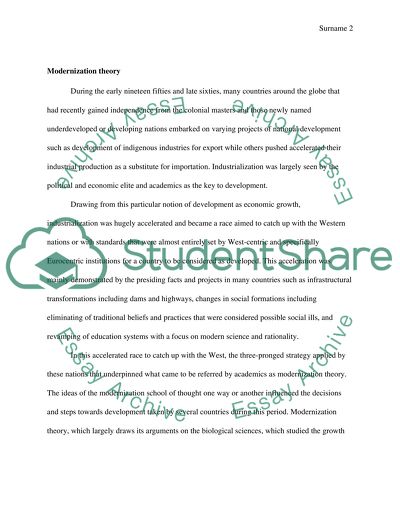Cite this document
(“Theories of Development: Modernization vs. Dependency Theory Essay”, n.d.)
Retrieved from https://studentshare.org/history/1483420-theories-of-development-modernization-vs-dependency-theory
Retrieved from https://studentshare.org/history/1483420-theories-of-development-modernization-vs-dependency-theory
(Theories of Development: Modernization Vs. Dependency Theory Essay)
https://studentshare.org/history/1483420-theories-of-development-modernization-vs-dependency-theory.
https://studentshare.org/history/1483420-theories-of-development-modernization-vs-dependency-theory.
“Theories of Development: Modernization Vs. Dependency Theory Essay”, n.d. https://studentshare.org/history/1483420-theories-of-development-modernization-vs-dependency-theory.


